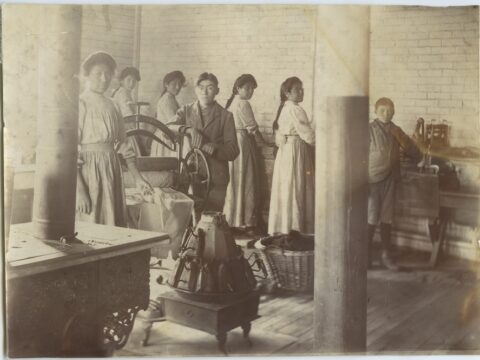Ever since the public release of ChatGPT in November 2022, I’ve been a nervous dabbler in artificial intelligence. Nervous that using AI is akin to giving it consent to steal my job. Nervous that it will eventually become so “human” and efficient that I’ll stop using my own brain. Or, horrible thought: what if AI turns out to be a better writer and editor than I am?
AI is possibly the most powerful tool humans have ever created. Like the One Ring in Lord of the Rings, we’ll worship and despise it. It will help us and harm us. It will save lives and destroy them. Will we resist its evil like Bilbo Baggins or succumb to its corruption like Sméagol-turned-Gollum?
You may unsubscribe from any of our newsletters at any time.
More on Broadview:
In this month’s cover story, Lindsay Borthwick examines artificial intelligence and whether its human creators and developers can infuse it with an ethical compass. Can it adopt or even exceed human morality? And if so, whose morals and values should it learn?
As with most of society, media leaders’ responses to AI run the gamut. Some newsrooms are embracing it to improve workflow efficiencies or to generate “easy” stories, freeing up journalists to dig into bigger investigative pieces. Just stuff the school board minutes into ChatGPT, and it will spit out two news stories in seconds. Meanwhile, your journalist is lunching with the school board trustee, trying to get the next big scoop.
Others have taken it a step further. Penny-pinching media companies are asking themselves: why hire journalists at all? Australia’s News Corp is churning out 3,000 AI-written stories a week about local traffic and gas station discounts, while the fabled magazine Sports Illustrated published articles by fake authors with AI-created biographies and headshots (leading to public outcry and the firing of its CEO).
Understandably, some media leaders are less than enthused. Many have decried AI’s ability to scrape decades’ worth of costly, original content from their websites and reformulate it into free stories, replete with bias and factual errors — and without any crediting to lead users back to the original source. Wikipedia never looked so good.
Most mainstream newsrooms are coming up with AI guidelines to ensure that human editors review AI-written stories, that AI-written content is labelled as such and that factual accuracy is the responsibility of humans, not bots. The message is: if we can’t control AI, maybe we can regulate the human staff who use it.
Want to read more from Broadview? Consider subscribing to one of our newsletters.
At Broadview, all our stories are written and edited exclusively by humans. We occasionally use ChatGPT to help us write headlines or come up with interview questions. So far, it has never delivered exactly what we want. But like a good brainstorming buddy, it gets some starter ideas on the page that can spark creativity.
Sure, I appreciate a few efficiencies, and AI can grab ideas and rework them in seconds. But what I really care about is connecting with you heart to heart and sharing in the lifelong and painstaking journey of what it means to be fully human. That’s been Broadview’s quest for the past 195 years and will remain so for as far as I can see into the future.
***
Jocelyn Bell is the editor and publisher of Broadview Magazine.













